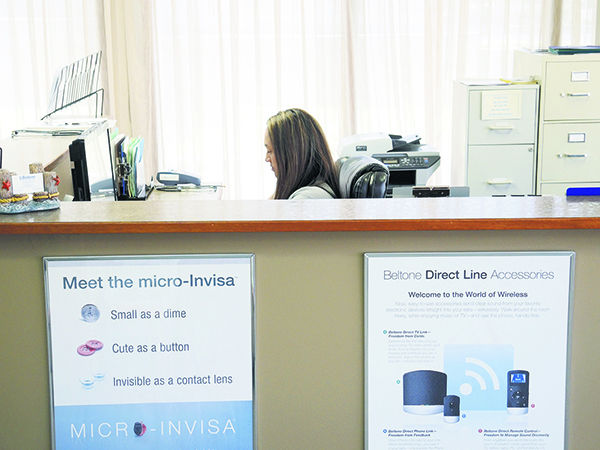LIHUE — It’s no surprise when Hawaii makes a top 10 list.
Three of the top 10 beaches in the country, for example, belong to the Aloha State, according to a recent Forbes Magazine list.
But a report published Monday by Forbes puts Hawaii on another list — naming it the worst place in the country to make a living.
The report based its findings on the average salaries, cost of living, employment rates and workplace conditions for each state.
Hawaii finished 50 out of 50.
It’s a ranking, depending on whom you ask, that’s either right on the money or way out of whack.
“That is absolutely true,” said Dustin Leach, owner of Beltone Hearing Aide Center in Lihue.
Leach said the high cost of living and the state government laws make it difficult to do business.
“If it weren’t so beautiful here, nobody would do business in this state,” said Leach, a 23-year family business owner. “The cost of paradise almost outweighs the cost of doing business here.”
Melissa Miles moved to Kauai from Santa Cruz, Calif., seven years ago to join the rest of her family in what she considers to be paradise.
But there is a price to pay, she said. It requires her to work two jobs to make ends meet, so the price of sunshine and surf is days spent cleaning vacation rentals.
“It’s a tough place. Wages don’t match the cost of living, it’s unbalanced,” Miles said. “People do two to three jobs to make it here.”
Following Hawaii on Forbes’ worst list are New York, Mississippi, Rhode Island and Connecticut, in order. The best states to make a living are Washington, Texas, Minnesota, Colorado and Utah.
Ray Momo is another resident who thinks the ranking may be spot on. He said the cost of housing in Kauai is outrageous and getting worse.
“This month is the first time in eight years of living in Koloa that I haven’t been able to pay my rent,” he said, adding the only way to combat expensive groceries is to grow them on one’s own.
“The only way to survive is to garden, hunt and fish. That’s what the locals do,” Momo said.
Todd Anderson, self-employed for the past 13 years, said he doesn’t think of the world in terms of dollars and cents, but in experiences and enjoyment.
Hawaii offers that, he said, regardless of what a report says.
”It’s a pleasure to live here and whatever you have to do is not that bad. Money is just to meet your needs. I never had trouble finding a job. If you’re willing to be humble and take whatever jobs, you should be fine,” Anderson said.
MaBel Ferreiro-Fujiuchi, chief executive officer for Kauai Economic Opportunity, Inc., doesn’t agree with the survey results.
She doesn’t know what they are basing the Hawaii ranking on but sees growth and prosperity when she looks around, so something must be going right.
“I don’t believe it is the worst or most difficult state to live in,” Ferreiro-Fujiuchi said. “I think things are getting better in general. You see more cars on the road. Traffic is a huge indicator of the economy on an island. I see more real estate signs on the road with people willing to buy and sell. At the mall, I see more people shopping.”
Ferreiro-Fujiuchi works with and serves the poorest people on the island.
Around 5,000 people have benefited from a range of services offered through KEO, including those in need of transitional housing, the homeless shelter, food stamps and utility assistance, among other programs benefiting a varying range of people who are financially challenged. But having a community of underprivileged isn’t unique to Hawaii.
“There’s always more need than there are services,” Ferreiro-Fujiuchi said. “But that is true everywhere, not just in Hawaii. You see the same thing everywhere.”
Richard Barrington, senior financial analyst for MoneyRates.com and author of the study, said the report was used to show the differences between the states.
“A lot of times if you happen to be living in a state with a high unemployment rate or high cost of living, it’s very easy to assume things are tough all over,” he said. “But there may be substantially better opportunities somewhere else.”
Hawaii’s unemployment rate according to the U.S. Department of Labor was 4.4 percent in April compared to states such as Illinois, Nevada and Rhode Island with 7.9, 8.0 and 8.3 percent, respectively.
“In spite of the high cost of doing business in Kauai, everybody makes adjustments so we can have a good quality of life and not take it for granted,” Randy Francisco, Kauai Chamber of Commerce president said. “Our values and community define us and they are very strong.”
Francisco said the dynamics of living on Kauai can be challenging, but the key to surviving on Kauai is having an extended family to share the load.
But whether it is the beaches or the weather or something else, Leach views the challenges of doing business on Kauai with a positive outlook.
”It’s home,” Leach said. “You’ll never get rich here, but it’s home.”
• Lisa Ann Capozzi, a features and education reporter can be reached at lcapozzi@thegardenisland.com.





